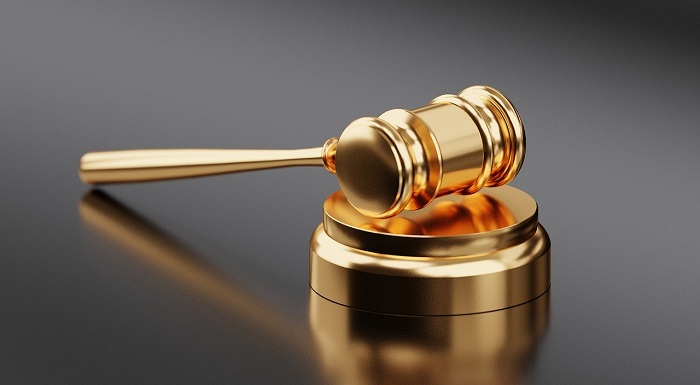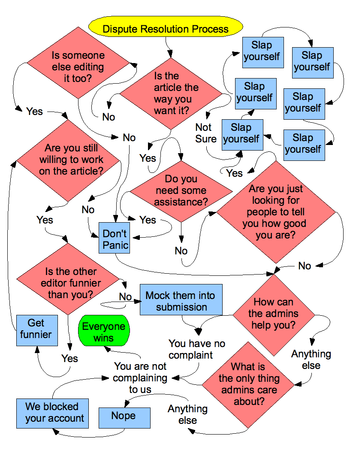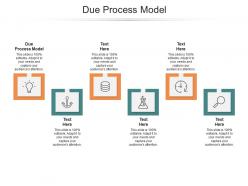The due process model is a legal concept that refers to the idea that individuals have certain rights and protections when facing accusations or charges in a criminal or quasi-criminal matter. This model is based on the principle that individuals are innocent until proven guilty, and that the government has a responsibility to ensure that justice is carried out in a fair and unbiased manner.
The due process model is rooted in the United States Constitution, specifically the Fifth and Fourteenth Amendments. These amendments guarantee the right to due process, which includes the right to a fair and impartial trial, the right to be informed of the charges against you, the right to an attorney, and the right to confront and cross-examine witnesses.
The due process model is often contrasted with the crime control model, which emphasizes the need for efficient and effective law enforcement and the swift punishment of offenders. While the crime control model focuses on the needs of the state and the protection of society, the due process model prioritizes the rights and freedoms of the individual.
One important aspect of the due process model is the requirement that the government must have probable cause before it can initiate legal proceedings against an individual. Probable cause is a standard of proof that requires evidence that is more than just a suspicion, but not necessarily as strong as the evidence required for a conviction. This standard helps to ensure that the government does not have the power to arbitrarily detain or charge individuals without a valid reason.
Another important aspect of the due process model is the right to a fair trial. This includes the right to an attorney, the right to a public trial, and the right to a trial by an impartial jury. These rights are designed to protect individuals from being unfairly convicted or punished by the government.
In addition to these legal protections, the due process model also requires that the government respect and protect the civil rights of individuals. This includes the right to freedom of speech, the right to privacy, and the right to be free from unreasonable searches and seizures.
Overall, the due process model is an important concept that helps to ensure that individuals are treated fairly and justly when facing accusations or charges in a criminal or quasi-criminal matter. It is a cornerstone of the American legal system and serves as a safeguard against abuses of power by the government.
Models Due Process Crime

There are those who feel that the moment that one is arrested, there is reasonable belief that they committed the crime. The object of looking at evidence in the due process model is deciding what information may be incorrect, falsified, or coerced from an individual. The purposes of the two models are to help maintain safety is society, as well as protect the rights of the suspect in various situations and scenarios. Conclusion In the 1960s, lawyer Herbert L. Arizona , providing all defendants with an attorney Gideon v. With the 1996 film, A Time to Kill, most of society watched this eye-opening and astonishing film and saw nothing but the conflict between races. Criminal codes, punishment, and courts varied from colony to colony.
Due process Model Flashcards

The government would have more authority to do things like search and seizure without a warrant, stop and frisk people on the street if they look suspicious, longer jail sentences without parole, and less time for appeals if someone is convicted of a crime. This expectation of due process outlines the relationship individuals expect to have with their local, state, and federal governments—specifically, that the rights of the individual will not be violated. Situational prevention and the reduction of white collar crime. Edkins also provided readers with information about the crime control model and its purpose of making sure that all convicted criminals have harsh punishments. Criminal defendants should be presumed innocent and the courts must protect suspects' rights - The CJ system should be designed as an obstacle course to prevent innocent people from being convicted and guilty people having their rights violated - it is better to let guilty people go free than to convict the innocent - the central premise of due process rights is the presumption of innocence.
The Due Process Model Of The Criminal Justice System

Depending on the amount of work put into the investigation and the quality of the work that is done, many suspects will either plead guilty, therefore there is no trial. Courts have taken an assertive approach to upholding due process, which has resulted in the executive and legislative branches of government adjusting how laws and statutes are written. The main idea of the DUE crime control model is to reflect liberal values. The authors are not in agreement with the crime control model, but they do support the due process model. The due process model would put more restrictions on the government when it comes to things like search and seizure, stop and frisk, and longer jail sentences.








